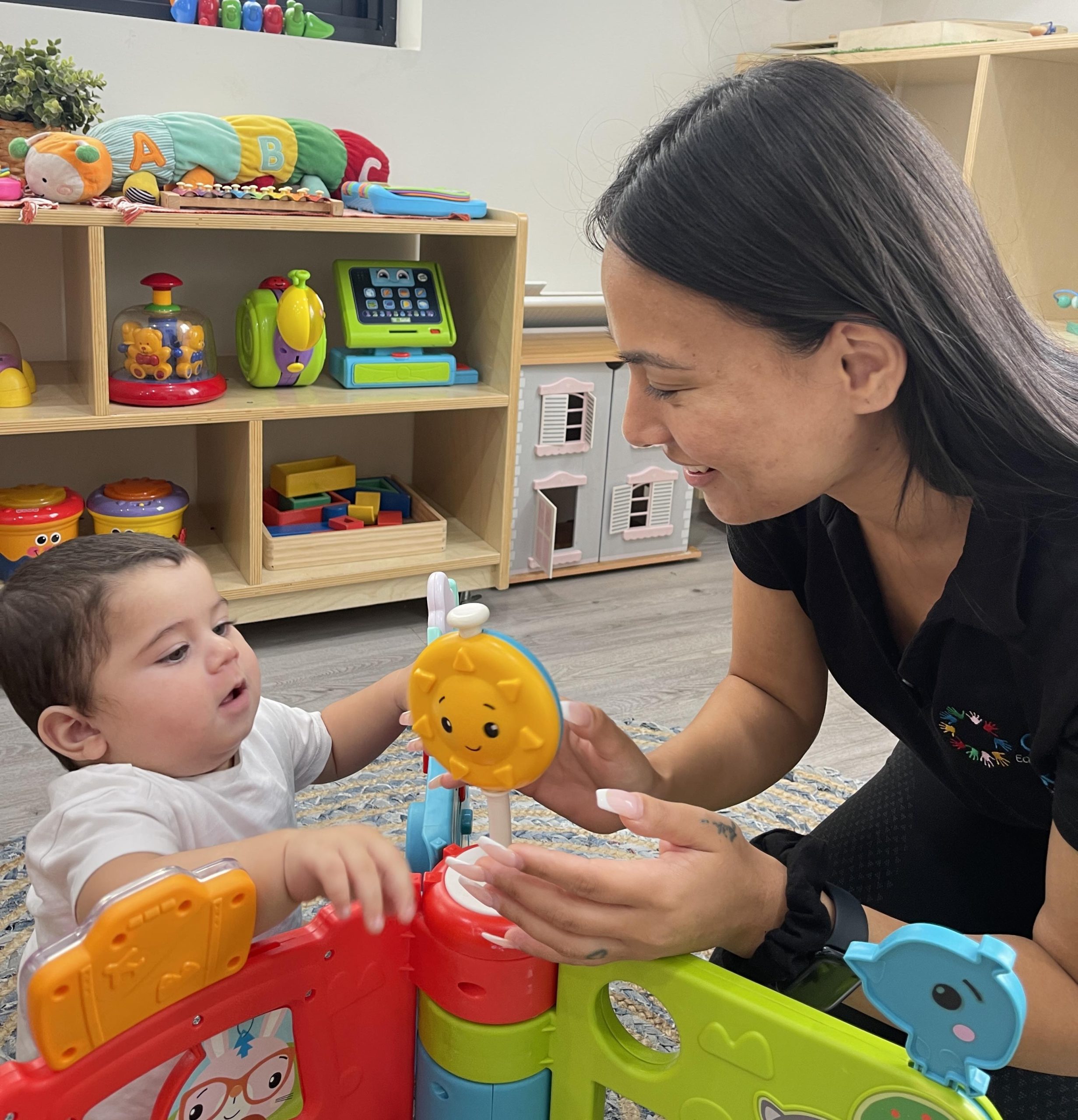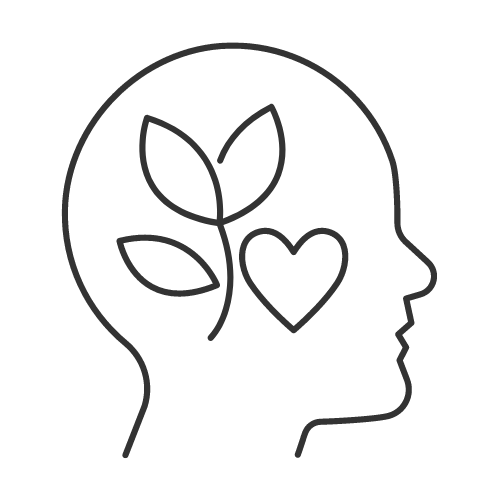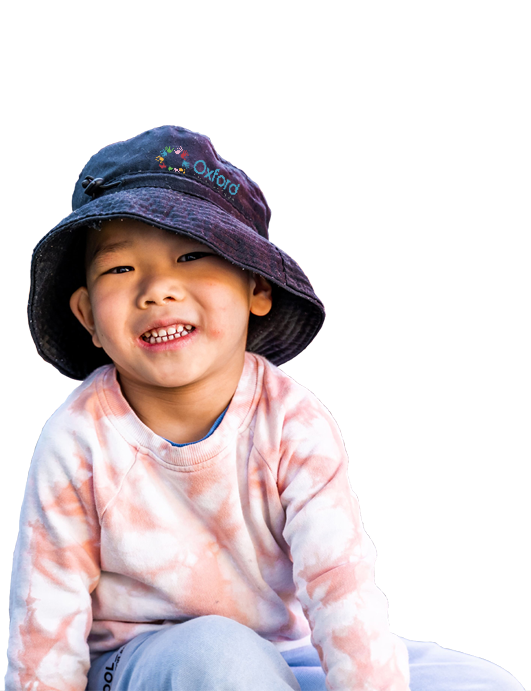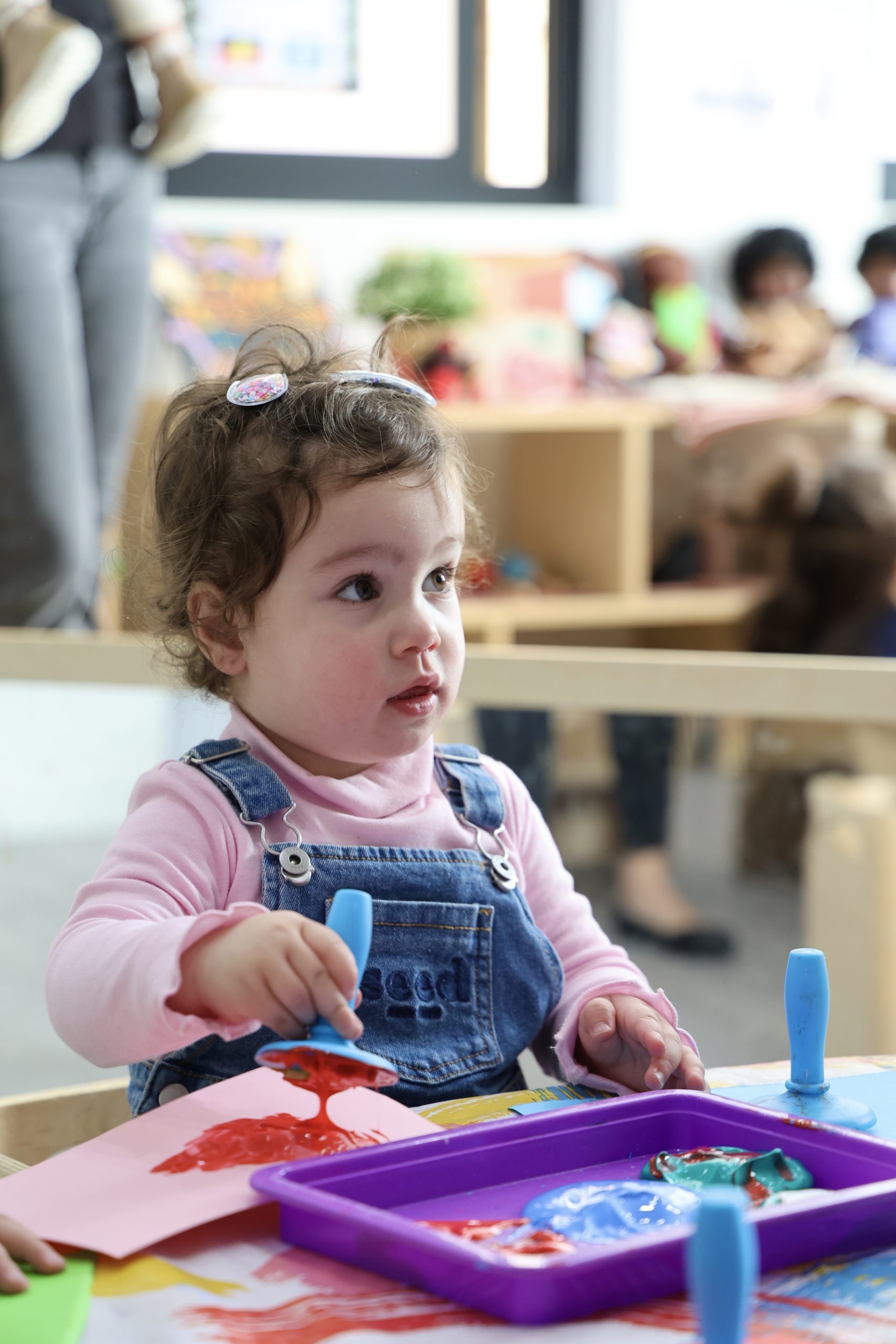Nurturing Growth: Our Infants Program

Our Babies program for children aged 6 weeks to two aims to develop the child in a nurturing environment and seeks to engage them in developmentally appropriate learning experiences in collaboration with families.
Educators are attuned to children’s interest and are there to intentionally provide support, guidance and inspiration to further develop their learning. Opportunities to learn through play encourage babies to be curious and be active researchers about their world.
Babies thrive through a soothing sensory environment and educators ensure that there is access to open ended play, space for movement and stimulation as babies can investigate them using their primary way of interacting with the world; through the senses.
Key Learning Areas

Sensorial
We provide engaging learning experiences through play that explore the five senses.

Identity
Oxford nurtures children's sense of identity by encouraging their interests, fostering independence, supporting resilience, building connections, encouraging exploration, and enhancing self-esteem and belonging.

Connection
Children learn about their connection and contribution by exploring diversity, culture, sustainability, community, and the principles of fairness, taking turns, group projects, and shared play.

Wellbeing
We cultivate positive attitudes towards health, wellbeing, and nutrition through daily movement, healthy habits, mindfulness exercises, bodily awareness, emotional learning, and the Munch and Move Program.

Learning
We provide engaging learning experiences through play, interest projects, and intentional teaching that foster problem-solving, fine and gross motor skills, resilience, creativity, concentration, and foundational academic skills.

Communication
We support the development of communication and pro-social skills through early literacy activities, storytelling, group activities, music and movement, child-directed learning, asking questions, group time, show and tell, and self-expression.

Aboriginal
Educators embed aboriginal perspectives into the curriculum by providing resources for play. We also build on children’s cultural capital through wall displays, cultural toys, and diverse storybooks.

Sustainability
We provide meaningful hand on learning experiences in order for children to become environmentally responsible. This supports their learning about sustainability and enables them to appreciate and respect their natural environment.
Materials and Activities Include:
Identity
- Mirrors & reflection
- Singing and using home languages
- Matching name and photos
Connection
- Telling stories about family and culture
- Participating in linguistic and cultural events such as Diwali, Easter, Harmony Day, NAIDOC, Eid, and Christmas.
- Singing in other languages
Wellbeing
- Learning about healthy eating
- Learning about body parts
- Learning about feelings
- Engaging in physical activity such as obstacle courses and soft play areas
Learning
- Engaging in interest based project topics
- Alphabet sounds and games
- Counting games
- Sensory bottles
- Easy Puzzles
- Drawing and painting
Communication
- Book Reading
- Dancing to music
- Free drawing and painting
Aboriginal
- Learning about greetings in different Language
- Reading aboriginal dreamtime stories
- Using clapping sticks to make music
Sustainability & Environment
- Planting and caring for the garden
- Engaging in energy saving practices
- Using recycled materials for loose parts play
- Learning about animals and their habitats
Sensorial
- Touching different materials
- Creating musical shakers
- Exploring light
- Playing with a range of percussion instruments
- Tasting new ingredients when participating in cooking experiences
Early Years Learning Framework
Oxford Early Learning Centre’s curriculum and the Australian Government’s Early Years Learning Curriculum: Belonging, Being & Becoming work together to nurture children’s potential. The EYLF incorporates five outcomes:
- Children have a strong sense of identity
- Children are connected with and contribute to their world
- Children have a strong sense of wellbeing
- Children are confident and involved learners
- Children are effective communicators


